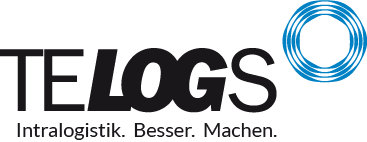Safe Legally Secure
Legal Basics of Maintenance and Servicing of Automatic Storage and Conveying Systems
Maintenance and servicing: the legal background
According to Section 3 of the Occupational Health and Safety Act, companies are obliged to provide their employees with safe and intact work equipment – this also applies to automated logistics systems. Proper maintenance of warehouse and materials handling equipment is thus legally binding: If accidents occur in the warehouse due to insufficient maintenance and inspection, the operator is liable.
Proper maintenance – individual responsibility
Only in a few cases do generally binding rules exist that specify which specific measures have to be taken and at what intervals.In other words – the goal is clear, but not the way to get there. This must be defined independently by the operator: For example, the accident prevention regulation: “Principles of Prevention” DGUV Vorschrift 1 requires companies to prepare an individual risk assessment. On this basis, inspection and maintenance intervals for many components of the bearing are to be determined independently. Three different aspects are relevant here:
1. The manufacturer’s specifications in the operating instructions.
2. Supporting guidelines, such as DIN standards and the regulations of the German Social Accident Insurance (DGUV formerly BGV).
3. The condition of the storage and conveying technology and the individual requirements for plant availability.
Maintenance in the warehouse Legal principles and guidelines
Laws, such as the Occupational Health and Safety Act and the Product Safety Act, are directive in nature. The DIN standards and the DGUV serve as a recommendation to the operator as to which measures are to be used to implement legal requirements.
Maintenance and servicing:
the legal background
According to Section 3 of the Occupational Health and Safety Act, companies are obliged to provide their employees with safe and intact work equipment – this also applies to automated logistics systems. Proper maintenance of warehouse and materials handling equipment is thus legally binding: If accidents occur in the warehouse due to insufficient maintenance and inspection, the operator is liable.
Proper maintenance – individual responsibility
Only in a few cases do generally binding rules exist that specify which specific measures must be taken and at what intervals.
In other words – the goal is clear, but not the way to get there. This must be defined independently by the operator: For example, the accident prevention regulation: “Principles of Prevention” DGUV Vorschrift 1 requires companies to prepare an individual risk assessment.
On this basis, inspection and maintenance intervals for many components of the bearing are to be determined independently. Three different aspects are relevant here:
1. The manufacturer’s specifications in the operating instructions.
2. Supporting guidelines, such as DIN standards and the regulations of the German Social Accident Insurance (DGUV formerly BGV).
3. The condition of the storage and conveying technology and the individual requirements for plant availability.
Warehouse maintenance
Legal basis and guidelines
Laws, such as the Occupational Health and Safety Act and the Product Safety Act, are directive in nature. The DIN standards and the DGUV serve as a recommendation to the operator as to which measures are to be used to implement legal requirements.

Guidelines and standards – Basis for every maintenance plan
All tests must be carried out by a qualified or competent person who has the appropriate
training courses and certificates.


From theory to maintenance concept with TELOGS
As a maintenance service provider, we are not only up to date with regard to legal issues, but also have comprehensive know-how and sound practical experience with regard to the maintenance and servicing of automatic storage and conveyor technology. Based on this, we develop an individual maintenance concept for your plant, with which you can meet the legal obligations. In doing so, we take into account manufacturer-typical weak points as well as your individual requirements and the operating times of the plant.
The solution for you: excellent maintenance service
Through the continuous training of our specialists, we ensure that our customers’ storage and conveying technology is always maintained and serviced according to the latest state of the art. Our employees possess the following qualifications, among others:
– Qualification for testing storage and retrieval machines according to DIN EN 528 (TÜV)
– Expertise in the testing of crane ropes as well as in the areas of Movidrive, gearboxes, braking systems, hydraulic lifting tables, lifting platforms and pallet transfer stations
– Qualification to test racking systems and to perform racking inspection according to DIN EN 15635
– Expertise in the use and testing of personal protective equipment (PPE) according to DGUV principle 312-906
– Expertise in the use of thermography for (fault) diagnostics
– Authorization to carry out CE marking
Your TELOGS team of experts for DGUV Regulation 3

The service team “Electrical and Control Engineering” with Marty Kamphausen (team leader), Sascha Magel and Mr. Alexander Wilberger, is specialized in the testing of DGUV regulation 3, in addition to other electrical tasks.
Press contact:

Key Account Manager
Im Ostpark 25
35435 Wettenberg
Tel.: +49 641-944649-78
Fax: +49 641-944649-20
Mail: s.troge@telogs.de
Press contact
Key Account Manager
TELOGS GmbH
Im Ostpark 25
35435 Wettenberg
Tel.: +49 641-944649-78
Fax: +49 641-944649-20
Mail: s.troge@telogs.de


